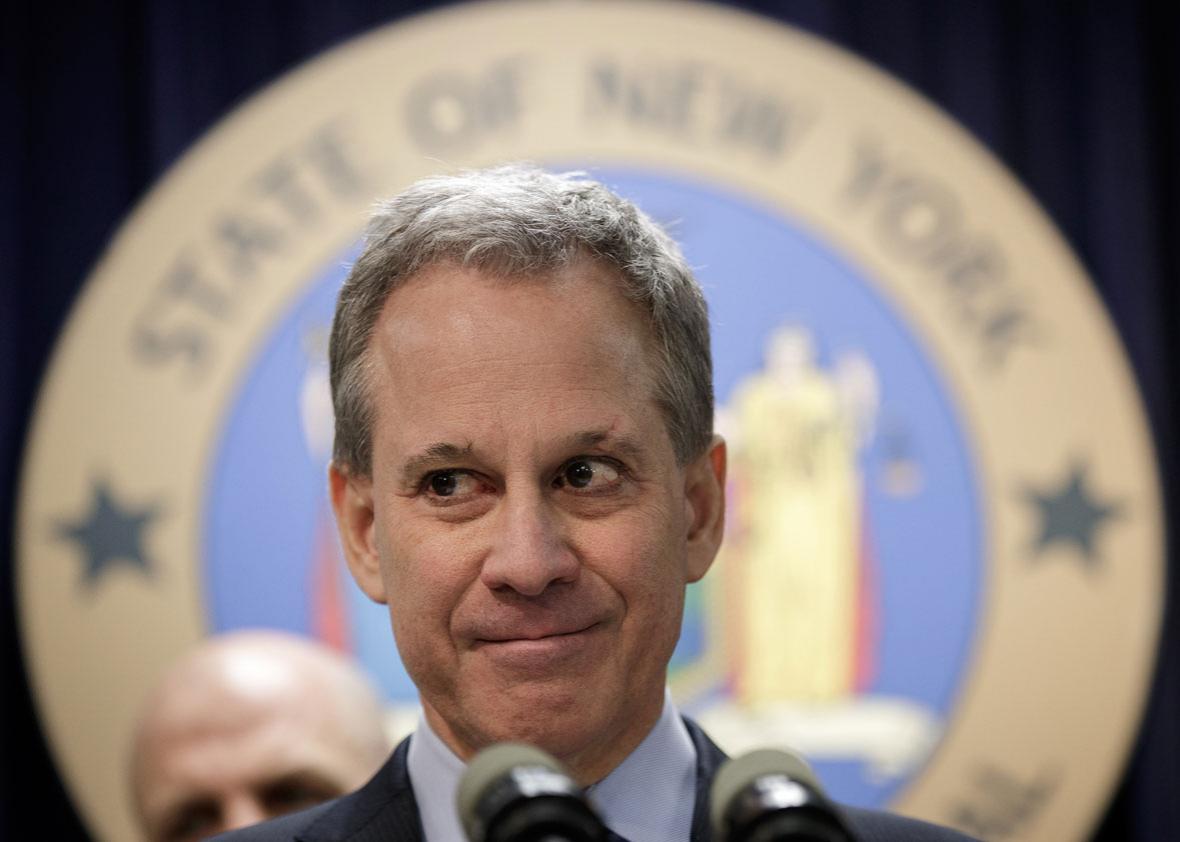This piece was originally published on Shugerblog.
There are more and more signals that Donald Trump is exploring firing Robert Mueller and pardoning anyone and everyone in his circle. So what would happen next? The bottom line is that those moves would backfire spectacularly.
First, can Trump pardon himself? That’s surprisingly hard to answer. The constitutional text gives no answer, and the Constitutional Convention of 1787 debates aren’t particularly helpful. Some people cite the Latin phrase Nemo judex in causa sua (One can’t be a judge in his own case) as some kind of answer, but the pardon power is executive, not judicial, so a president isn’t formally a judge in his own case. Plus, we don’t live in Rome, even if the Latin sounds wicked smart. The bottom line is that the only significant barriers to self-pardons are politics (impeachment) and federalism (state powers).
Want to listen to this article out loud? Hear it on Slate Voice.
Presidential pardons can’t apply to state prosecutions. That means state attorneys general, especially New York’s Eric Schneiderman, Washington, D.C.’s Karl Racine, and Delaware’s Matthew Denn should think about canceling their summer vacation plans. (Yes, Delaware. Go Google “quo warranto,” see this old post, or better yet continue reading.) And maybe they should open up some office space for Mueller and his A-Team when he inevitably gets fired for getting closer and closer to hard evidence of serious crimes.
The president cannot pardon people for state crimes. Even if Trump pardons, say, his son-in-law Jared Kushner, a state prosecutor can bring charges under state law anytime. Similarly, Trump can be prosecuted under state law. President Richard Nixon’s attorney general concluded in 1974 that a sitting president can’t be indicted, but there is no constitutional text or precedent for such a conclusion—and it was obviously an interpretation that benefited Nixon. I think this is an open question.
If you’re pardoned for your potential involvement in a federal crime, you could plead the Fifth Amendment—the privilege against self-incrimination—if you subsequently faced state charges. But in that case, the danger of state conviction under a mountain of documented evidence would likely be enough to get someone like Michael Flynn or Paul Manafort to flip and be a witness against Trump.
Pardons can also be their own basis for impeachment. Impeachment, the Constitution stipulates, should be reserved for “Treason, Bribery, or other high Crimes and Misdemeanors.” If a president abuses his or her power, that abuse can be the basis of impeachment even if that abuse isn’t formally covered by any criminal statute. For example, if Trump disregarded Supreme Court rulings on immigration (or if he disregarded the law to sabotage health care), Congress could impeach and convict. Abuse of the pardon power could be the same. I’d go further and argue that the use of the pardon to obstruct a criminal investigation is, well, obstruction of justice.
A president has the power to order a military strike, but not if his intent is to murder someone who has dirt on him or who is sleeping with his wife. Similarly, Trump has the power to fire FBI directors, but his intent can be criminal and violate the obstruction statutes 18 U.S. Code sections 1503, 1505 and 1512(c)(2). So too does a president have the power to pardon. But if he were to issue a pardon in exchange for a bribe with criminal intent, he should be prosecuted for bribery. In this case, if Trump pardons with corrupt intent to obstruct the investigation, he should be impeached and prosecuted for obstruction of justice.
Now, on to the Mueller question: Can Trump fire the man who’s leading the Russia investigation? I’ve been reading a lot about this, and I’ll rely on Jack Goldsmith, who led the Department of Justice’s Office of Legal Counsel under John Ashcroft and James Comey: It turns out there is no clear answer.
Let’s assume Trump does fire Mueller. It turns out there are many ways for him to get back on the case:
- A state prosecutor, with the help of a state attorney general or governor, could hire Mueller and his team of lawyers. They’d have subpoena power under state criminal law.
- State attorneys general could use their quo warranto power to investigate the Trump Organization, fraud, and money laundering from Russian sources.
- A congressional committee, such as the Senate Intelligence Committee, could hire him. Congress could also create a Joint Select Committee.
- Congress could pass a new independent counsel statute that circumvents the president. This would require a veto-proof two-thirds supermajority of each house. Don’t hold your breath on that one.
- The civil litigation on emoluments (there are now three suits) and the very intriguing new suit against the Trump campaign for hacking conspiracy can also pursue many of the same questions, and Mueller and his lawyers could be called in as a witness in these cases.
The bottom line is that there are many paths to continue this investigation. If Trump pardons people or fires Mueller, those moves will backfire almost as badly as his firing of James Comey.
